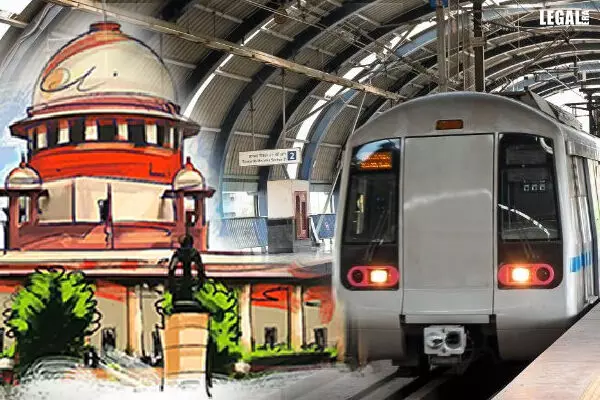- Home
- News
- Articles+
- Aerospace
- Artificial Intelligence
- Agriculture
- Alternate Dispute Resolution
- Arbitration & Mediation
- Banking and Finance
- Bankruptcy
- Book Review
- Bribery & Corruption
- Commercial Litigation
- Competition Law
- Conference Reports
- Consumer Products
- Contract
- Corporate Governance
- Corporate Law
- Covid-19
- Cryptocurrency
- Cybersecurity
- Data Protection
- Defence
- Digital Economy
- E-commerce
- Employment Law
- Energy and Natural Resources
- Entertainment and Sports Law
- Environmental Law
- Environmental, Social, and Governance
- Foreign Direct Investment
- Food and Beverage
- Gaming
- Health Care
- IBC Diaries
- In Focus
- Inclusion & Diversity
- Insurance Law
- Intellectual Property
- International Law
- IP & Tech Era
- Know the Law
- Labour Laws
- Law & Policy and Regulation
- Litigation
- Litigation Funding
- Manufacturing
- Mergers & Acquisitions
- NFTs
- Privacy
- Private Equity
- Project Finance
- Real Estate
- Risk and Compliance
- Student Corner
- Take On Board
- Tax
- Technology Media and Telecom
- Tributes
- Viewpoint
- Zoom In
- Law Firms
- In-House
- Rankings
- E-Magazine
- Legal Era TV
- Events
- Middle East
- Africa
- News
- Articles
- Aerospace
- Artificial Intelligence
- Agriculture
- Alternate Dispute Resolution
- Arbitration & Mediation
- Banking and Finance
- Bankruptcy
- Book Review
- Bribery & Corruption
- Commercial Litigation
- Competition Law
- Conference Reports
- Consumer Products
- Contract
- Corporate Governance
- Corporate Law
- Covid-19
- Cryptocurrency
- Cybersecurity
- Data Protection
- Defence
- Digital Economy
- E-commerce
- Employment Law
- Energy and Natural Resources
- Entertainment and Sports Law
- Environmental Law
- Environmental, Social, and Governance
- Foreign Direct Investment
- Food and Beverage
- Gaming
- Health Care
- IBC Diaries
- In Focus
- Inclusion & Diversity
- Insurance Law
- Intellectual Property
- International Law
- IP & Tech Era
- Know the Law
- Labour Laws
- Law & Policy and Regulation
- Litigation
- Litigation Funding
- Manufacturing
- Mergers & Acquisitions
- NFTs
- Privacy
- Private Equity
- Project Finance
- Real Estate
- Risk and Compliance
- Student Corner
- Take On Board
- Tax
- Technology Media and Telecom
- Tributes
- Viewpoint
- Zoom In
- Law Firms
- In-House
- Rankings
- E-Magazine
- Legal Era TV
- Events
- Middle East
- Africa
Supreme Court Relieves DMRC Of Rs 8000 Crore Liability In Dispute With DAMEPL

Supreme Court Relieves DMRC Of Rs 8000 Crore Liability In Dispute With DAMEPL
The Supreme Court has relieved the Delhi Metro Rail Corporation (DMRC) of a substantial liability amounting to approximately Rs 8,000 crore. This decision overturned its 2021 judgment, which upheld the arbitral award in favor of Delhi Airport Metro Express Private Limited (DAMEPL), a subsidiary of Reliance Infrastructure, against the DMRC.
Granting the curative petition submitted by the DMRC, the bench, consisting of CJI DY Chandrachud and Justices BR Gavai and Surya Kant, concluded that the Supreme Court had made a mistake in intervening with the 2019 judgment of the Delhi High Court, which had annulled the arbitral award against the DMRC.
The bench observed that the Supreme Court ought not to have interfered with the Delhi High Court's judgment under Article 136 of the Constitution, as it was a well-considered judgment. "By setting aside the High Court judgment, this Court restored a patently illegal award that saddled a public utility with an exorbitant liability," the Court observed. This resulted in a "great miscarriage of justice," which warrants the exercise of curative jurisdiction under Article 142 of the Constitution.
This case stems from the failure to pay termination fees to DAMEPL, a company owned by Anil Ambani's Reliance Infrastructure Limited, by the Delhi Metro Rail Corporation. This occurred despite the termination of a contract for operating the airport metro line before its scheduled end.
The dispute underwent arbitration in 2017, where the Tribunal ruled in favour of DAMEPL, awarding a total sum of Rs. 2782.33 crores along with interest. DMRC's challenge against this award was initially dismissed by a Single-Judge of the Delhi High Court in March 2018. However, it succeeded in the subsequent Letters Patent Appeal, resulting in the award being appropriately set aside. DAMEPL then appealed to the Supreme Court for a final resolution on the matter.
On September 9, 2021, the Supreme Court resolved the matter by overturning the High Court's decision and affirming the original award issued by the Tribunal.
The Supreme Court held that the judgment of the two-judge bench, which overruled the decision of division bench of the high court, resulted in a miscarriage of justice. The Division Bench correctly determined that the arbitral award was flawed due to perversity and patent illegality. The Supreme Court's intervention failed to justify itself and reinstated an illegal award, causing grave injustice.
Therefore, the court allowed the curative petitions, restoring the parties to their position in which they were on the date of pronouncement of the Delhi High Court's judgment, the Court directed that the amounts deposited by the DMRC shall be refunded. Any amount paid by DMRC as part of coercive action has to be refunded and the execution proceedings for the award must be discontinued and any amounts deposited by the petitioner were to be refunded.
The court emphasized that curative jurisdiction should not be used routinely and cautioned against opening floodgates for further court intervention in arbitral awards. In this specific case, the court concluded that it erred in interfering with the Division Bench's decision, as the Division Bench's judgment was based on a correct application of the law. The interference resulted in reinstating an illegal award, constituting a grave miscarriage of justice.



